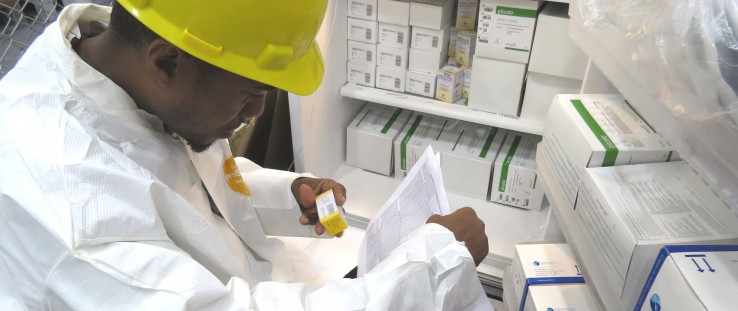 A warehouse staffer checks new stock of life-saving drugs for Guyana’s HIV/AIDS population.
Carol A. Gaskin, USAID
A warehouse staffer checks new stock of life-saving drugs for Guyana’s HIV/AIDS population.
Carol A. Gaskin, USAID
 A warehouse staffer checks new stock of life-saving drugs for Guyana’s HIV/AIDS population.
Carol A. Gaskin, USAID
A warehouse staffer checks new stock of life-saving drugs for Guyana’s HIV/AIDS population.
Carol A. Gaskin, USAID
Speeches Shim
“HIV is not me. It is just something living inside of me. I am not going to let it get the best of me,” declares Melanie Hill, a 41-year-old HIV survivor who has been winning the fight against the disease for the last 20 years.
She is just one of an estimated 7,800 people currently living with HIV/AIDS in Guyana, South America’s lone English-speaking nation, which has the region’s highest HIV/AIDS rate. Due to limited knowledge and fear, HIV-infected people in Guyana can face stigma and discrimination, which can adversely impact their overall health and impede their access to care.
But Hill is staying positive against all odds. “I am not someone who worries and I try not to stress. I just want to be comfortable and live a happy life,” she says, flashing her trademark smile.
While the proud mother of five is not one to view the world through rose-colored glasses, she has learned how to take its thorns in stride. Nothing has been tougher in life, Hill says, than the HIV-related stigma and discrimination experienced at the hands of strangers, friends and even close relatives.
“At first my family turned their back on me. I guess they were ashamed,” explains the outspoken HIV advocate. “If they saw me talking to anyone, even strangers, they would tell them that I have AIDS. I would explain that I am HIV-positive and you cannot catch the disease just like that. It was really hurtful. But I didn’t let that keep me down.”
Hill credits G-Plus, an NGO network for people with HIV that has received USAID support, for helping her through some low periods. “Any time I was feeling depressed, I would send a WhatsApp message to the group and someone would always be there to encourage me. We are always there to support each other,” she says.
Members of Guyana’s HIV/AIDS population can now regularly access life-saving drugs. For the past 10 years, USAID has supported strengthening Guyana’s health systems through the global Supply Chain Management System (SCMS) project.
Funded through the President’s Emergency Plan for AIDS Relief, the project’s mission is to establish and maintain a reliable, cost-effective and sustainable global supply chain that makes essential HIV/AIDS commodities available to people living with and affected by the virus. Through the project, Guyana’s Ministry of Public Health improved logistics, forecasting, procurement, warehousing and distribution of rapid test kits, viral load reagents, antiretrovirals and other HIV-related products and services.
Hill, who remained out of the health system for years after her initial diagnosis at age 21, has since benefited from life-saving drugs and today is in the enviable position of having an “undetected” viral load. Her decision to seek treatment in 2006 fortuitously coincided with the establishment of the first SCMS field office in Georgetown, the country’s capital.
“When I found out that I was HIV-positive, I did not pay it much mind. I couldn’t believe that it had happened. I went back into the system 10 years ago when I was pregnant with my third child and was immediately put on medication. Other than the common cold and the flu, I have never been sick, I have never been hospitalized,” Hill gratefully admitted. “Everything is much better now. I am living a much healthier life. Sometimes even if I don’t feel like taking my medication, my children bring them and remind me. I am so thankful that all of them are HIV-negative.”
To date, SCMS has delivered $2.7 billion worth of life-saving services and products to 67 countries worldwide. In Guyana, 4,500 HIV patients are receiving antiretrovirals, over 1,000 Ministry of Public Health staff members were trained, and standard treatment guidelines were developed and implemented to reduce waste.
Among the more tangible results is a state-of-the-art, 26,951-square meter warehouse complex located on the East Bank of the Demerara River, which was jointly financed by several partners including USAID, the Centers for Disease Control and Prevention, the Global Fund, the World Bank and the Inter-American Development Bank. The warehouse was commissioned on March 8, 2013.
Greg Miles, SCMS deputy director for field programs support, lauded team Guyana’s dedication, innovation and hard work.
“Guyana, being our first country to have a field office, set the pace for many lessons learned that were eventually taken on as best practices by other countries,” he said. “Despite a relatively small budget and staff contingent, in comparison to our larger programs such as Nigeria, Tanzania, Ethiopia and Zambia, SCMS Guyana has been able to punch well above its weight and make a very significant contribution to global SCMS program delivery.”
Becoming a Role Model
As a means of giving back, for the past six years Hill has worked as a caregiver with Lifeline Counselling Services, a USAID-supported NGO that provides community-level HIV care and support services.
“I am the only HIV-positive person working here, so I can relate to what our clients are going through. We see a lot of people who are born HIV-positive and are fed up with taking the medication. I am able to use my experience to show them how important it is to stay on their medication,” she explained.
Lifeline Counselling Services Executive Director Gloria Joseph says Hill, as a client-turned-employee, plays a key role in helping staff better understand and relate to HIV-positive clients. “As a person living with HIV, Melanie is able to share and encourage others about the importance of disclosure, behavior change and adhering to their ARV [antiretroviral] medication. Because the virus is under control, she uses this to encourage others to work hard to achieve the same,” Joseph explained.
To other HIV-positive people, Hill offers this advice: “It is not an easy road to walk. Hold your head up. Try to give back. HIV should make you a more positive person, not a negative one. Don’t try to get back at anyone.”
Every day, she strives to follow her own advice and to be a positive example for others to emulate.
Paying This ‘Lifeline’ Forward
USAID has supported Lifeline Counselling Services for 10 years. Over the last four years, the organization has provided care and support to more than 560 people with HIV, including 35 orphans and vulnerable children. Says Executive Director Gloria Joseph: “We conduct home visits, counsel clients and family members, help patients to access HIV care and treatment clinics and stay on treatment, and even assist clients with job applications. All this is possible through USAID funding. USAID’s support also provides employment opportunities for persons living with HIV … who are empowered to give back by helping others, like themselves, to stay in treatment.”

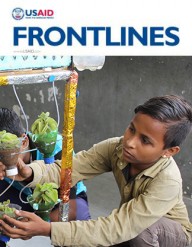

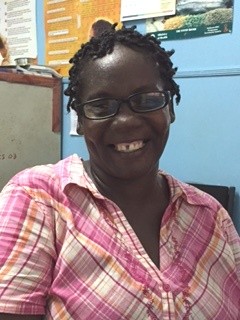
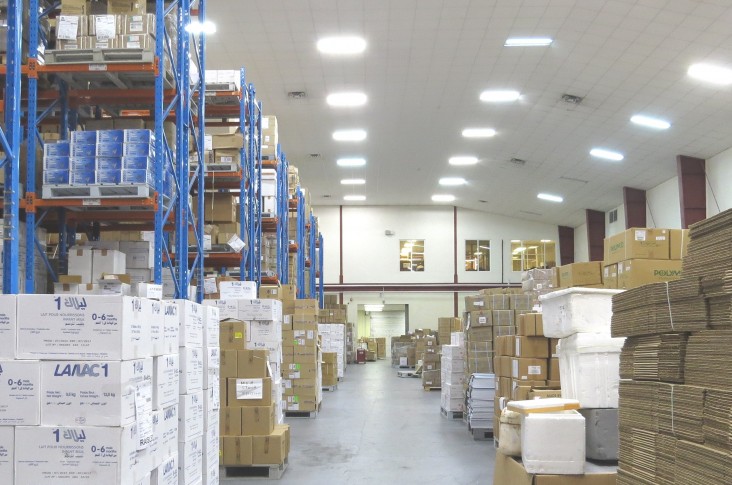
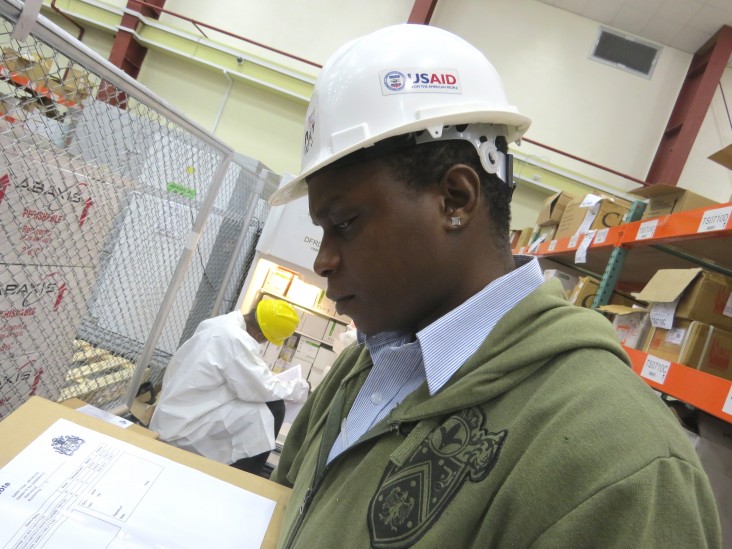
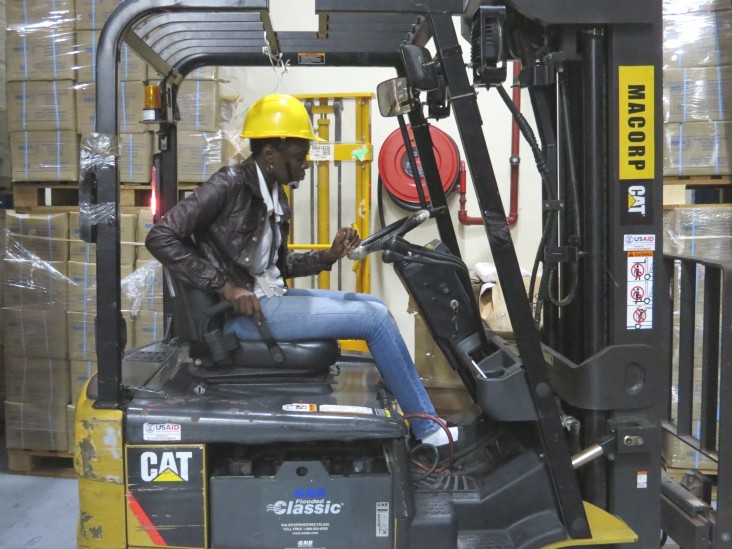
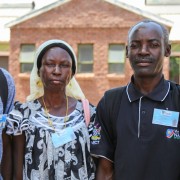
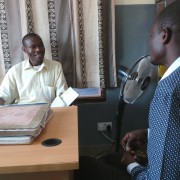
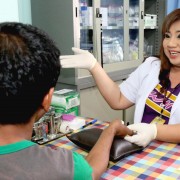
Comment
Make a general inquiry or suggest an improvement.